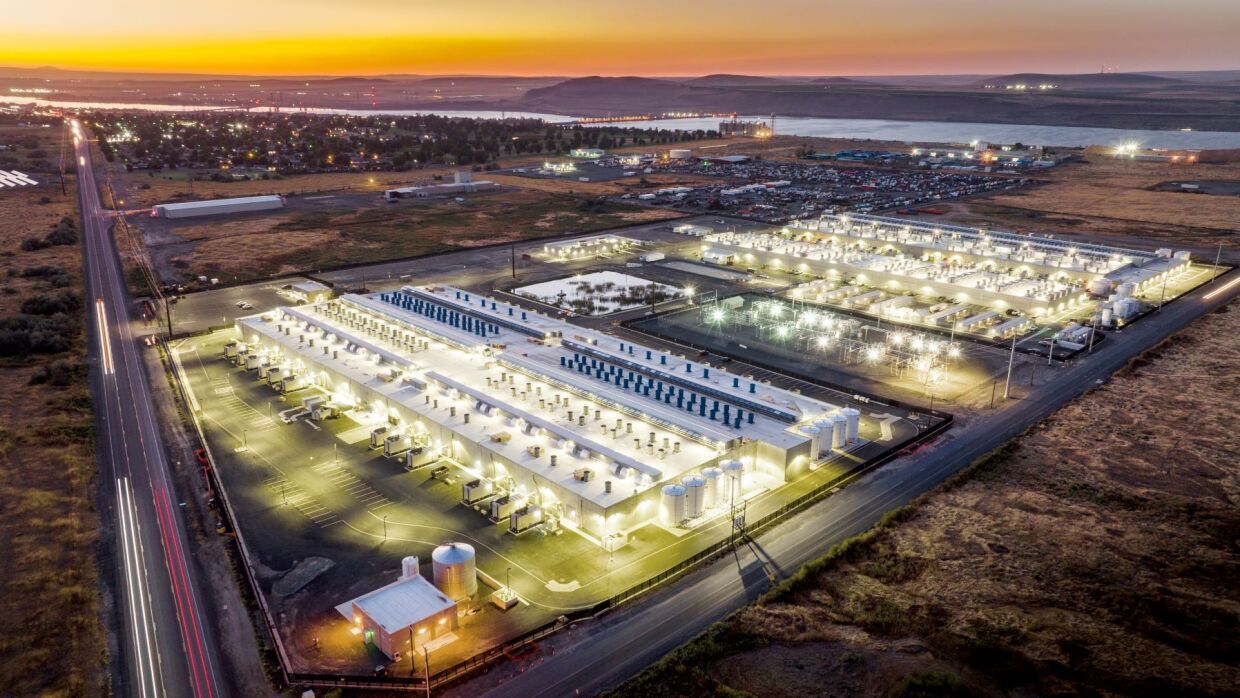In January 2023, Amazon Web Services (AWS) started transitioning to hydrotreated vegetable oil (HVO) to power backup generators at its data centre sites in Europe, with sites in Ireland and Sweden among the first to make the switch. Backup generators are used at data centre sites to provide back up power in the very rare instances when the main source of power is interrupted.
HVO is a renewable fuel that can be made from waste cooking oil, or vegetable, plant, and residue oils. According to one of our fuel suppliers, Certa, HVO can reduce greenhouse gas emissions by up to 90% over the fuel’s lifecycle when compared with fossil diesel. HVO and other renewable diesels are proven to be more compatible with industrial machinery than biodiesel as they don’t require any modification to the fuel systems and can remain stable even in the coldest winter temperatures. This versatility allows AWS to fill the tanks of its backup generators with HVO without any operational changes and use it across different regions and colder climates.
Building a steady supply
In the future, AWS aims to use HVO at all its data centre sites across Europe. For this to happen there has to be an accessible, steady, and sustainable supply of HVO. That’s why AWS is helping to develop a global supply chain, working with local organisations like Certa in Ireland, and is investing in the procurement of HVO that only comes from renewable sources, with raw materials that are traceable to their origins and not derived from sources that would impact highly biodiverse areas.
Andrew Graham, Managing Director of Certa Ireland said: “We’re excited to be working with AWS to help drive their renewable energy transition through the supply of our HVO. At Certa, our mission is to connect our customers with the most progressive energy solutions available, and as a straight drop-in replacement for conventional diesel, our HVO Bio Fuel provides up to 90% reduction in carbon emissions instantly, with no generator retrofitting required. We look forward to continuing the energy transition journey alongside AWS.”
Neil Morris, Director of Infrastructure Operations, Northern Europe, at AWS said: “At AWS, we’re committed to and invested in sustainability because it’s a win all around—it’s good for the planet, for business, for our customers, and for our communities. Transitioning to HVO is just one of the many ways we’re improving the sustainability of our data centres, decarbonising our operations, and working towards Amazon’s company-wide goal to meet net-zero carbon by 2040, ten years ahead of the Paris Agreement. By making this commitment to using sustainably-sourced HVO at our data centres sites, we hope to pave the way for other businesses, and help establish a global supply chain that will accelerate change across Europe, working in collaboration with other organisations.”
Our commitment to meet net-zero carbon by 2040
The move is a part of Amazon’s commitment to be net-zero carbon by 2040 – ten years ahead of the Paris Agreement – and as outlined in The Climate Pledge, which we co-founded in 2019. The Pledge now has over 400 signatories, including Best Buy, IBM, Microsoft, PepsiCo, Siemens, Unilever, Verizon, and Visa. As part of this Pledge, Amazon is on a path to powering our operations with 100% renewable energy by 2025, five years ahead of our initial 2030 target. Amazon is the largest corporate buyer of renewable energy — a position we’ve held since 2020 according to Bloomberg New Energy Finance — and we now have 401 projects globally, including 164 wind farms and solar farms, and 237 rooftop solar projects on Amazon facilities.
In addition to transitioning to HVO, Amazon is investing in alternative fuel options to replace diesel and other fossil fuels to further decarbonise our operations. For example, we have signed an agreement with Plug Power to supply green hydrogen for our transportation and building operations, starting in 2025. We also continue to transform our transportation network, including electrifying our delivery fleet; Amazon currently has thousands of electric delivery vehicles from Rivian in more than 100 cities and regions in the U.S., thousands of electric vans delivering packages to customers in Europe, and several electric vehicle partnerships in APAC. In addition, we are investing $2 billion in the development of decarbonising services and solutions through the Climate Pledge Fund.
Learn more about Amazon’s sustainability commitments.












